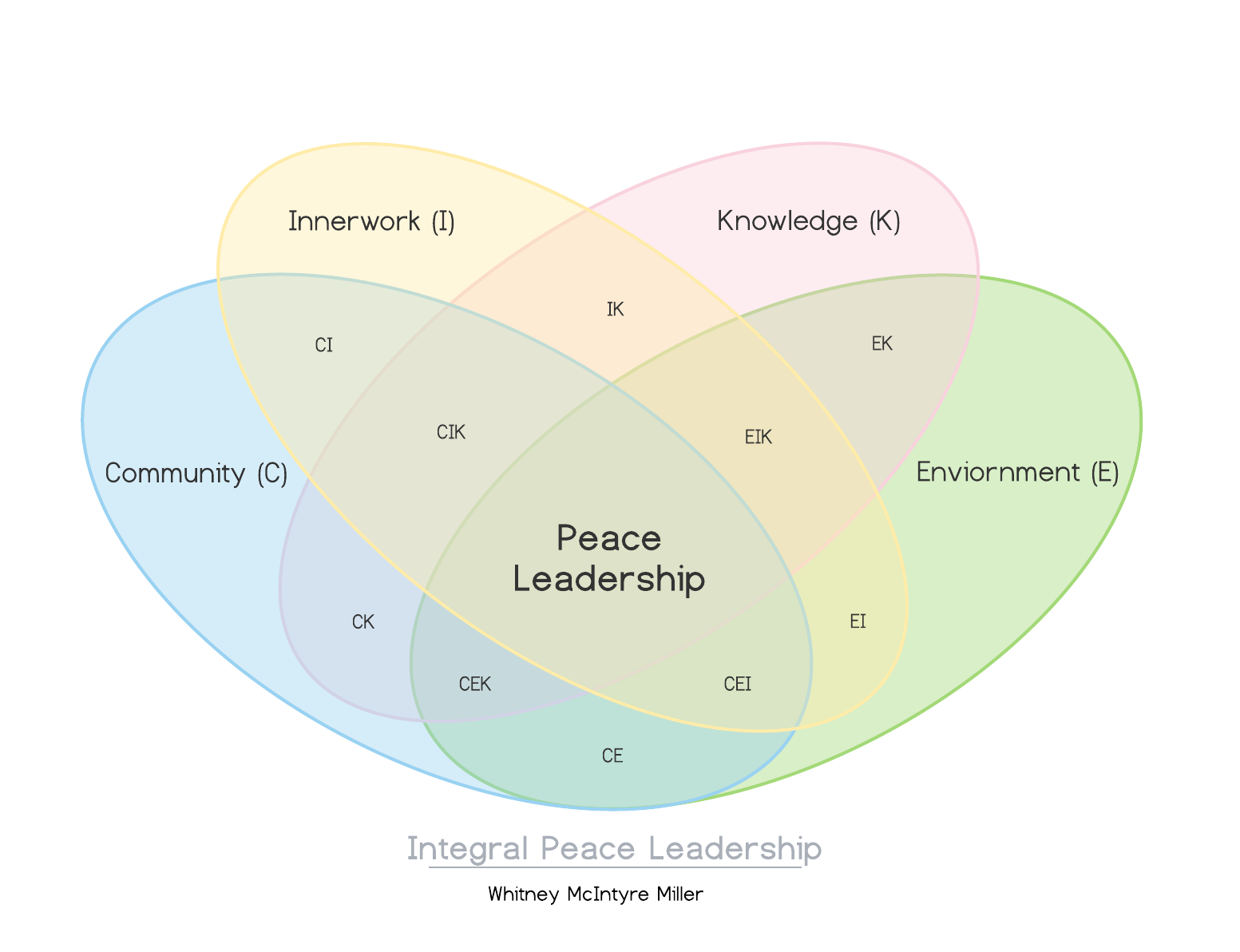
Integral Peace Leadership.
Challenging violence and aggression. Creating positive, just change.
Integral peace leadership is a proactive, intentional approach to individual and collective action built through the interconnected development of skills and practices in order to challenge violence and aggression and create positive, just change.
Integral Peace Leadership is found at the intersection of the skills and practices of Innerwork, Knowledge, Community, and Environment.
-
Innerwork.
A space for cultivating sustainable, personal peace practices, which enable us to know and appreciate ourselves with the flexibility to adapt and grow. Innerwork is found by enacting love, empathy, compassion, forgiveness, and respect for self and others and may include practices such as mindfulness, meditation, and personal wellness, including psychological and trauma healing.
-
Knowledge.
A space that informs peace leaders’ work with others. It involves an in-depth understanding of the contextual realities of a situation and is enacted by engaging in conflict transformation practices, such as dialogue, listening, negotiation, mediation, and reconciliation. This space also serves to create positive peace actions through initiatives such as education, storytelling, and grassroots efforts.
-
Community.
A space for creating collaborative peacebuilding efforts and repairing community harm. Rooted in locally driven change, the community space relies on social and human capital to create a space of solidarity and inclusivity. Utilizing capacity and coalition building, this community area creates space for collective action for peaceful transformation.
-
Environment.
A space to address deficient systems and structures and create a culture of peace. It involves understanding the inherent complexity and distributed nature of systems-level work. Utilizing tools such as advocacy, activism, and networking, peace leaders tap into resources, financial and beyond, to foster equity and justice for the planet and all its diverse global peoples.

Peace Leadership Development Curriculum
With Gratitude.
The work of Integral Peace Leadership would not be possible without intellectual contributions from Zachary Gabriel Green, Miznah O. Alomair, and countless other colleagues. I will forever be grateful for your feedback and encouragement.
A heartfelt thanks to the American Psychological Association’s Peace Psychology Division, Chapman University and its Attallah College of Educational Studies, the Euphrates Institute, and the Miner Anderson Family Foundation for supporting integral peace leadership projects and scholarship.
